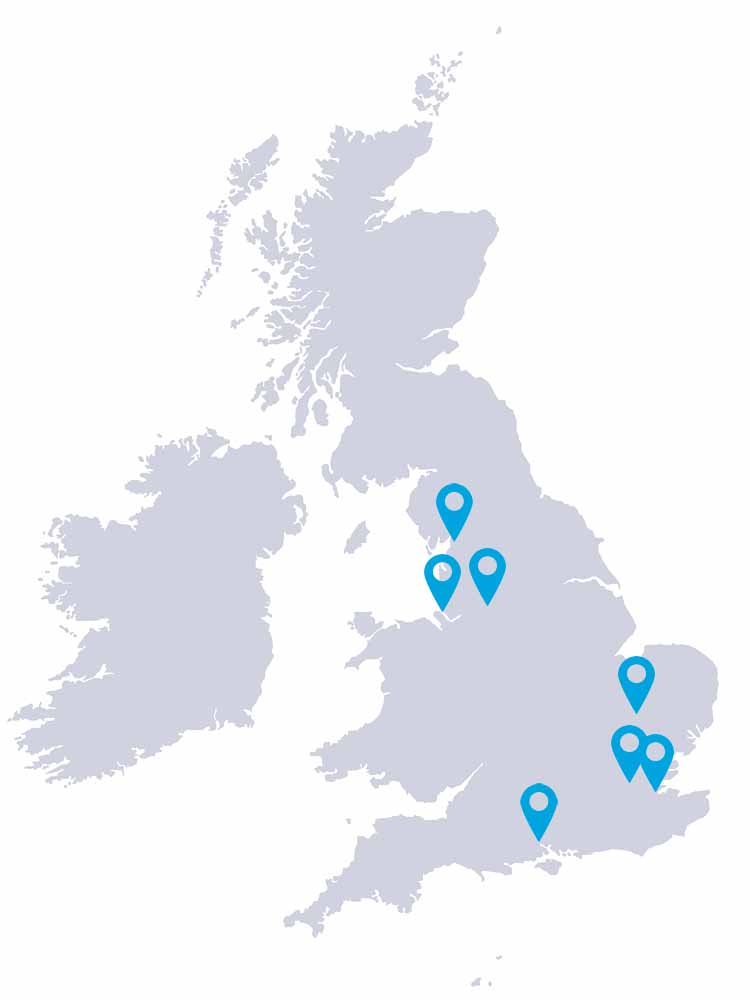About Us
The AGILE clinical trial platform is a new type of study designed for pandemic drug testing which represents a world-first for infectious diseases – capable of testing multiple potential treatments in parallel and speeding up testing by pooling control data across patient groups
The coronavirus pandemic is like nothing we’ve seen in modern times. Its transmissibility and severity have overwhelmed conventional means of managing infectious diseases, and so far quarantine – with its considerable social and economic costs – is our only effective defence.
The AGILE clinical trial platform has been launched specifically to test new COVID-19 treatments, faster than ever before. It bridges the gap between non-human trials and large-scale testing, so potential new treatments can go through the important testing stages in a matter of months rather than years, while maintaining a high level of safety at all times.
This provides the potential for one or more suitable treatment options to become broadly available for patients with COVID-19 much sooner, and ultimately, allowing us to restart society.
The MHRA (Medicines and Healthcare products Regulatory Agency) has fully evaluated this platform and given its approval. The UK regulatory body has adapted rapidly to the altered circumstances in the pandemic to help efforts against coronavirus.

Southampton
Southampton Clinical Trials Unit and the Southampton NIHR Clinical Research Facility are working to support and deliver the AGILE platform and trials within it.
London
Royal Free Hospital
Support led by Dr Sir Michael Jacobs, clinical lead in infectious diseases at the Royal Free London NHS Foundation Trust supported by a team of consultants providing a clinical service dealing with infections.
Liverpool
The University of Liverpool and the Liverpool School of Tropical Medicine
The Liverpool NIHR Clinical Research facility, Liverpool University Hospitals NHS Foundation Trust, Liverpool University and the Liverpool School of Tropical Medicine are working to support and deliver the AGILE platform.
Manchester
The NIHR Manchester Clinical Research Facility is working to support and deliver the AGILE platform and trials within it.
Cambridge
University of Cambridge: Support led by Professor Thomas Jaki, based in the MRC Biostatistics Unit
Lancashire
The NIHR Lancashire Clinical Research Facility
is working to support and deliver the AGILE platform and trials within it.
London
The NIHR King’s Clinical Research Facility at King’s College Hospital
is working to support and deliver the AGILE platform and trials within it.
Faster drug testing for COVID-19, for a faster return to normal life
Our Mission
Our mission is to shorten the time taken to identify safe, effective and affordable treatments for COVID-19.
Our Vision
AGILE will be the key link in the chain of accelerated drug development, evaluating potential candidate treatments for COVID-19 and advancing only the compounds most likely to be effective into large-scale clinical trials.
Our Ethos
As citizens and as academic researchers, we seek new and effective treatments for COVID-19 as quickly as possible, made readily available to all who need it. We recognise the importance of generating research data which are robust, reproducible, timely, of high quality and used for public good.
We will apply the following considerations which reflect our core values (and those of our funders) and the public nature of our core funding:
- Patient benefit is our utmost priority and everything we do is for the ultimate benefit of patients.
- We will not compromise on quality as we create the evidence for better therapeutics quickly.
- We do not seek to make any financial profit from the AGILE platform. Our costs are calculated using published UK HEI (academic) and NIHR models.
- AGILE is designed as an open resource. Our Master Protocol, and associated templates for candidate-specific trial arms are published, and freely available for use by other researchers (at their own risk).
- The AGILE Sponsor retains the rights to all data generated from our clinical research activity. This is important for the purposes of Research and Education, but also for sharing data across arms (as is the purpose of any platform trial), for depositing anonymised data in large shared repositories, and for use by other researchers.
- Collaboration to find promising drug candidates is the lifeblood of our Programme. We actively seek discussions with the pharmaceutical and biotechnology industry, with other academic researchers, public consortia and global healthcare stakeholders.
- We believe that public-private collaborative partnerships can be a win-win for all, and fully support the need for industry to develop commercially viable products. We also believe that COVID-19 poses one of the greatest global humanitarian threats in our lifetime; there is both a humanitarian and an ethical imperative to make effective treatments available to all, and especially to ensure equitable and affordable access for low- and middle-income countries.
- We take our candidate prioritisation process seriously. Our independent Scientific Advisory Board oversees this process, which takes into account the strength and quality of supporting evidence as well as our capacity to undertake any trial. We may also not pursue candidates which do not meet our criteria for scalable, and affordable access. It is never our intention to stop any potential medicine from undergoing investigation and we seek only to prioritise our limited resources to opportunities that stand the best chance of success.
Learn more about the AGILE trial
Funders
The AGILE Initiative is made possible thanks to support provided through a variety of donors. The AGILE Platform is supported by the Wellcome Trust (221590/Z/20/Z), the UK Medical Research Council (MR/V028391/1), and UKRI. AGILE CST-2 has received financial support from Ridgeback Biotherapeutics. AGILE CST-3 is supported by Unitaid. AGILE CST-5 has received financial support from GSK plc and Vir Biotechnology. Collaborative financial support has also been provided by the Liverpool School of Tropical Medicine, University of Liverpool, and Southampton Clinical Trials Unit as well as the NHS (Liverpool University Hospitals NHS Foundation Trust).

